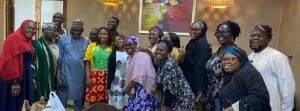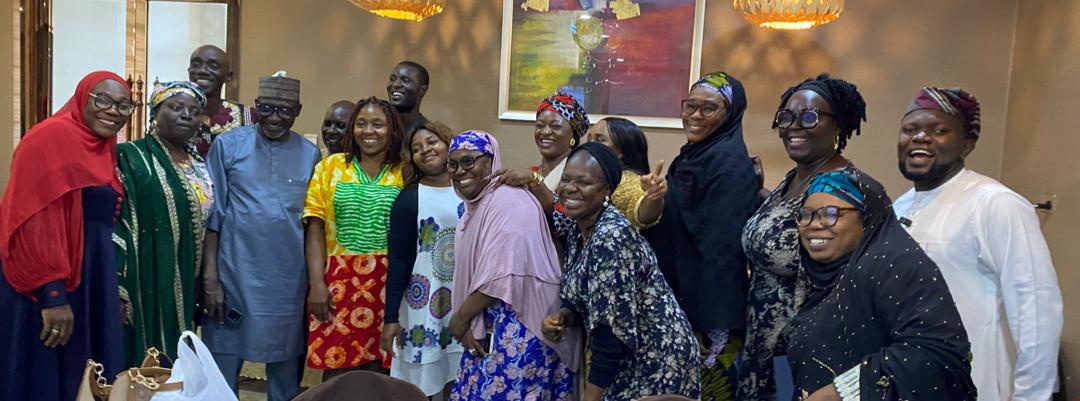Pathfinder International Trains Journalists, Influencers on Family Planning and Maternal Health Advocacy
Pathfinder International Nigeria, through its Smart Advocacy for Strategic Action (SASA) project, has organized a two-day capacity-strengthening workshop for journalists and social media influencers in Abuja.
The initiative, held in collaboration with PPDARO and Jhpiego Kenya, took place on Thursday, September 25, and Friday, September 26, in Abuja.
This newspaper report that the SASA project seeks to advance Family Planning (FP) and Maternal, Newborn, and Child Health (MNCH) outcomes in Nigeria by promoting citizen-led advocacy on financing, budgeting, accountability, and collaboration. Media practitioners are seen as key actors in setting public agenda, amplifying advocacy messages, shaping discourse, and holding policymakers accountable to improve women’s and children’s health.

Speaking during the training, the Senior Media and Communication Officer at Pathfinder International, Bayo Ewuola, said the workshop was designed to deepen participants’ understanding of critical health issues and equip them with the tools to tell impactful and ethical stories.
“The purpose of this workshop was to deepen understanding of family planning and maternal, newborn, and child health. These are not abstract concepts; they are about saving the lives of our mothers, sisters, daughters, and aunties, people that matter to us. Media is very powerful in engineering change, and this training was designed to empower journalists and social media influencers to tell more accurate and ethical stories that go beyond headlines,” he explained.
Ewuola emphasized that FP and MNCH issues have often been relegated to the background, but there is now a deliberate push to bring them to the forefront across Nigeria.
“Each state has its own priorities, whether in Kano, Lagos, Kaduna, or the FCT. During this training, we identified these priorities, the gaps that exist, and the opportunities media can use to push for better health outcomes,” he said.
The training also focused on investigative, data-driven, and solution-based journalism. According to Ewuola, the ultimate goal is to move past statistics and instead highlight real challenges, policies, and the voices of affected communities.
“We want journalists to serve as watchdogs, producing investigative and compassionate reports that not only inform but also drive policy change. By framing issues differently and focusing on solutions, the media can contribute to saving lives and building a healthier, more prosperous future for Nigerians,” he added.
On his part, National President of the Nigeria Union of Journalists (NUJ), Comrade Alhassan Yahaya, urged journalists to champion family planning, reduce maternal mortality.
He described the training as “timely and critical,” highlighting recent data from the National Demographic and Health Survey (NDHS) which shows that several northern states continue to struggle with high rates of maternal deaths.
“As journalists, it is high time for us to focus more on maternal health and family planning. Communities that embrace child spacing can reduce maternal deaths by up to 40%. This is not just a statistic, it is about saving lives of mothers, sisters, daughters, and aunties,” he said.
Yahaya commended Pathfinder International for building the capacity of journalists and social media influencers, noting that such training empowers media practitioners to become advocates for meaningful change in Nigeria’s health sector.
“Journalism, especially in the health sector, is a service to humanity. We may not always be highly remunerated, but our true reward comes from working for our communities and contributing to a better country,” he emphasized.
He encouraged participants to embrace developmental journalism, which provides opportunities to engage with policymakers, including ministers and commissioners of health, and to influence public discourse on health priorities.
“This workshop gives journalists the tools to report responsibly, highlight critical issues, and hold decision-makers accountable. The impact of your work can shape policies and directly improve the health outcomes of Nigerians,” Yahaya added.
Aishatu Ahamed, one of the journalists attending the training, expressed her gratitude to the organizers and promised to put the knowledge gained into practice.
“I am very thankful for this opportunity. The workshop has deepened my understanding of family planning and maternal and child health issues. I am committed to using what I have learned to tell accurate, ethical, and solution-focused stories that can make a real difference in my community,” she said.
The workshop is expected to strengthen the ability of Nigerian media and digital voices to drive narratives that inform the public, engage policymakers, and push for increased resources for women’s and children’s health.

